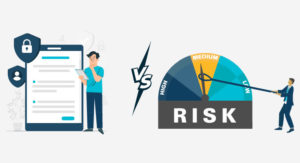7 Reasons to Switch to Compliance Apps instead of Cross-Border Manuals

Compliance is a word that’s thrown around leisurely in the financial services industry. Banks, financial institutions, FinTechs, and other businesses operating in the financial industry need to comply with KYC and AML regulations. For years, businesses have been relying on country manuals or handbooks that are jurisdiction-specific. These guidelines contain all rules and guidelines for businesses and financial services businesses.
Handbooks are essential for legal and compliance teams, but you can also be a compliant business activity of wealth as asset managers, HR, Marketing, and even IT teams.
What Are Compliance Apps?
Compliance apps are tools for financial institutions that need to comply with KYC or AML regulations. AML and KYC directives keep changing frequently, so it’s hard for most financial institutions to keep up with them. They allow for faster compliance and decision-making and efficient knowledge sharing between internal parties, businesses, and other departments throughout the organization.
Here’s why you should use compliance apps. 7 Advantages of Compliance Apps
1. Clear Guidance on Compliance
Compliance apps provide users with simple answers to confusing questions related to business activities abroad. The answers are visually pleasing and straightforward and provide answers for endless business scenarios. Compared to hand-held cross-country manuals and static text, compliance apps provide information in a much more consumer-friendly method. Compliance apps provide clear guidance on the information you require, which requires compliance time.
2. Flexible & Scalable Coverage
Compliance apps can support the growing needs of businesses. With compliance apps, businesses can choose a variety of business scenarios and new countries and add as many users as needed to access the app. Compliance apps compared to country manuals can provide scalable information. Country KYC and AML compliance manuals can’t grow according to businesses.
3. Immediate Answers Regarding Regulations
Compliance apps offer a user-friendly comparison between different cross-border scenarios on a single screen. It’s easy to find out answers to complex situations, which isn’t possible with country compliance manuals, and exploring cross-border situations often takes days.
4. Compare Cross-Border Compliance Factors in Real-Time
Compliance apps users can compare compliance rules and regulations all over the globe in real-time without having to do tons of research. Easily find out where the circumstance best fits products and services. Cross-border country manuals can’t support exploring the comparison of scenarios.
5. Up-to-date Knowledge
By using compliance apps, banks and financial institutions can reduce the risk of missing out on important updates, and they’re automatically applied to the knowledge consumed by users on the app. If you compare this advantage of compliance apps with country compliance manuals, then these manuals need to be updated and distributed manually whenever any update comes in KYC and AML directives.
6. Facilitate Knowledge Sharing Internally
Compliance apps provide users with an increased chance of knowledge sharing among business teams with just a couple of clicks. Communicating with teams and sharing even the smallest of information becomes easy and quick. This can’t be done with country KYC and AML compliance manuals.
7. Answers Offered on Instrumental Level
Compliance apps offer business activities not for just one country, most of them provide insights on a product level, adding context and providing highly tailored guidance that all businesses and teams can benefit from. There is a certain level of complexity that country compliance manuals can simplify.
Conclusion: Advantages of Compliance Apps
Banks and financial institutions that don’t focus on compliance as much as they should tend to get fined. By using tools like compliance apps and online KYC verification software, banks and financial services businesses can improve their overall compliance process.













